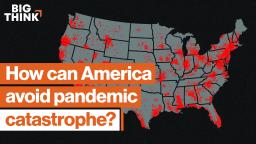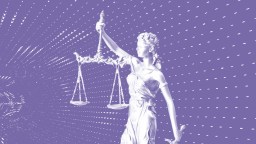government
Soviet researchers studied crime through a Marxist-Leninist lens. Under Lenin, a humanitarian approach to criminality briefly emerged, but dissipated when Stalin rose to power.
Unreasonable burdens prevent people from thriving. Eliminate them.
The questions about which massive structures to build, and where, are actually very hard to answer. Infrastructure is always about the future: It takes years to construct, and lasts for years beyond that.
Unstable politics and virtue signaling are responsible for creating bureaucratic nightmares.
These Roman Emperors were infamous for their debauchery and cruelty.
“It’s not always about agreement, more often it’s about business.”
Biologists use commonly-found insects that engage in cannibalism to prove a key evolutionary concept.
For some philosophers, hope is a second-rate way of relating to reality.
If more people decide to apply pressure through their choices, slowly but surely we would reach climate change herd immunity.
Most people seem to enjoy liberalism and its spin offs, but what is it exactly? Where did the idea come from?
While not the first such minister, the loneliness epidemic in Japan will make this one the hardest working.
The opening lines of Smartmatic’s $2.7 billion lawsuit against Fox News lay bare the culture of denial in the US.
Even tyrants and despots offer wisdom worth heeding.
From making their own swabs to staying in constant communication across the board, Northwell Health dove headfirst into uncharted waters to take on the virus and save lives.
▸
8 min
—
with
A crash course in the history of money, the birth of Bitcoin, and blockchain technology.
▸
17 min
—
with
Northwell Health has built an elaborate data system to track and fight COVID-19. If this system goes global, it could prevent a future pandemic.
▸
3 min
—
with
The idea behind the law was simple: make it more difficult for online sex traffickers to find victims.
The long-term lessons America learns from the coronavirus pandemic will spell life or death.
▸
3 min
—
with
The AI constitution can mean the difference between war and peace—or total extinction.
▸
5 min
—
with
A new survey shows who believes what and how it differs from what Americans believe as a whole.
Want to tell someone’s future in the US? You don’t need a crystal ball, just their zip code.
The federal government and private insurers greatly increased Americans’ telehealth access during the pandemic. Will these changes be permanent?
Spoiler: Most people actually approved of their government’s approach.
“The function of private media is to make money for the people who own the media. It is a business,” Sanders said.
The next era in American history can look entirely different. It’s up to us to choose.
▸
5 min
—
with
Of course, it’s all about where you move. The authors argue that it needs to be less populous regions.
It was a concept borrowed from the Iroquois, and one that America never quite mastered.
▸
6 min
—
with
Monopolies wield an immense amount of economic and political power and influence. So what can we do to make the economy more equitable?
▸
5 min
—
with
States set their own voting laws, so where does this make voting easiest?
A heated debate is occurring at the University of Miami.





























